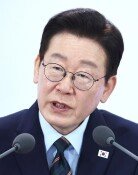Impact of government intervention and greedy banks
Impact of government intervention and greedy banks
Posted January. 05, 2023 07:58,
Updated January. 05, 2023 07:58
Lending rates continue to increase in the new year. The variable interest rate of mortgages at top five banks ranges around 5.25~8.12% per year, exceeding the 8% range and representing more than a 3% increase from last year. It is the first time in 14 years for mortgage loan rates to exceed the 8% range since the Asian financial crisis in 2008. Though there may not be many loans that apply the highest rates, it would only be a matter of time for average interest rate levels to reach the 8% range. At some banks, mortgage rates have increased significantly to the point that mortgage rates under 7% are no longer available.
Meanwhile, fixed interest rates for savings have dropped to the 4% range. Last November, banks introduced savings deposits in the 5% range per year, vying to attract customers. Such savings deposits are no longer available, impacted by falling deposit interest rates despite the Bank of Korea raising base rates.
Financial authorities’ market intervention mostly impacts the cause of this reversal in interest rates. The authorities initially advised banks to refrain from raising interest rates. Still, when it was criticized for controlling savings instead of lending rates, it started to track lending rate trends to curb the increase. Intervention in the savings and lending market amid rising market interest rates only resulted in interest rate distortion.
Banks that have inflicted loss to customers while keeping a close eye on financial authorities will be held accountable for their doings. Banks have kept a passive stance when authorities asked to keep lending rates down while acting quickly to reduce savings rates. The increase in lending exceeded savings rates, with interest earnings reaching 40.6 trillion won (Jan to Sept 2022), the highest ever. The difference between the lending and deposit rates reached 2.46 percentage points as of the third quarter last year, the highest in eight years, which is expected to have grown more recently.
Households, businesses, and the self-employed bearing a debt burden of 479 trillion won are suffering from the surging interest rate. Those who have taken out mortgage rates are spending more than 60% of their annual income on paying back the principle. Banks should refrain from pursuing earnings for their own good and share financial burdens in what is expected to be a year of severe economic recession amid high-interest rates. Rather than excessively intervening in the market, financial authorities should practice compassionate finance for the financially vulnerable and accelerate efforts to support businesses in financial difficulty and soft landing of households.





![[단독]폴란드, 韓 해군 최초 잠수함 ‘장보고함’ 무상 양도 안받기로](https://dimg.donga.com/c/138/175/90/1/wps/NEWS/IMAGE/2026/02/27/133437397.1.jpg)

